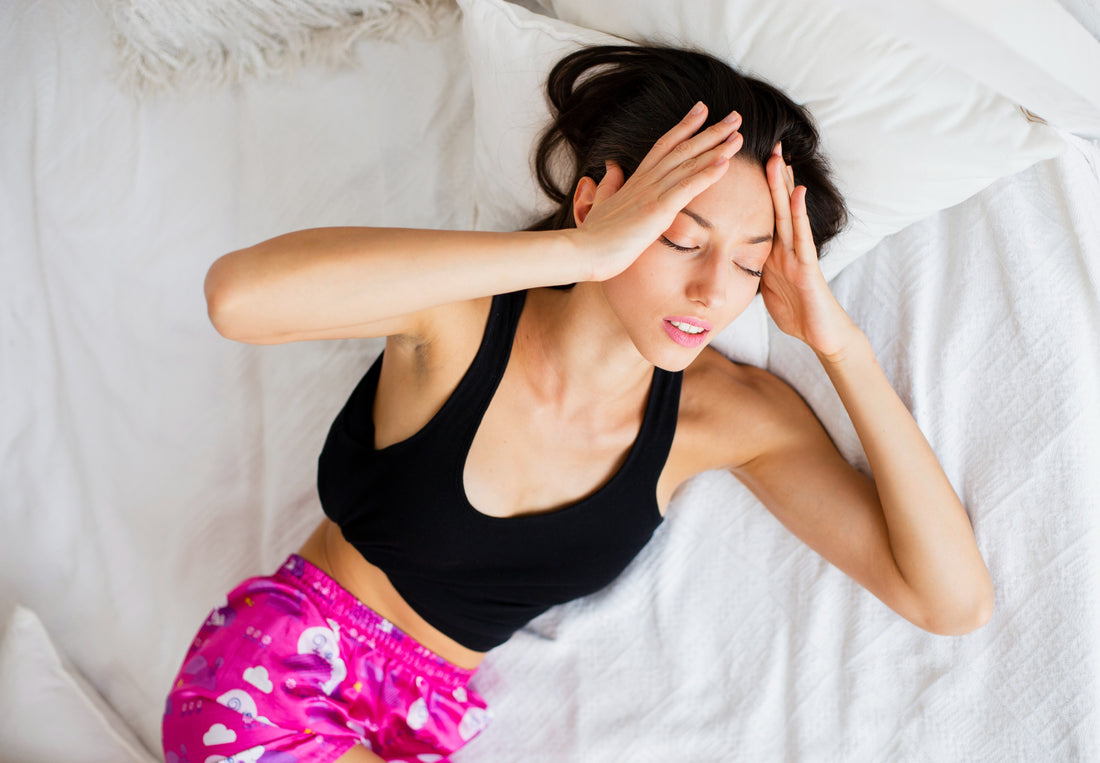Have you ever found yourself tossing and turning in the middle of the night, feeling uncomfortably warm and restless? It's a common experience that many people have, and it can disrupt the peaceful journey into dreamland. The sensation of getting hot during sleep, also known as ‘Night Sweats’ or ‘Sleep Hyperhidrosis’, can be caused by a variety of factors.
In this article, we will delve into the intriguing world of night-time heat and explore 11 possible explanations for why you might get hot when you sleep. From physiological changes to environmental influences and even medical conditions, we'll uncover the diverse reasons behind this phenomenon. Understanding the root causes of night-time heat can help you take steps to ensure a more comfortable and restful night's sleep. So, let's embark on a journey to discover the science and mysteries of why sleep can sometimes feel like an unexpected sauna.
11 reasons why you get hot when you sleep
Getting hot during sleep, often referred to as Night Sweats or Sleep Hyperhidrosis, can be attributed to various factors. Let's explore 11 possible reasons for this phenomenon, along with detailed explanations for each:
- Room Temperature: The most obvious reason for feeling hot during sleep is an excessively warm room. A room that's too hot can trap heat, making it difficult for your body to cool down naturally.
- Bedding Materials: The type of bedding you use can influence your body temperature. Materials like flannel and heavy duvets can retain heat, while breathable fabrics like cotton and linen promote better airflow and temperature regulation.
- Menopause and Hormonal Changes: Menopausal women often experience night sweats due to hormonal fluctuations. Decreased oestrogen levels can disrupt the body's temperature regulation, leading to hot flashes and excessive sweating.
- Infections and Illnesses: Fever-inducing illnesses, such as infections or flu, can cause night-time heat. The body's natural response to infection includes an elevated body temperature, which can persist during sleep.
- Medications: Some medications, including certain antidepressants and steroids, can lead to increased body heat and night sweats as side effects.
- Diet and Spicy Foods: Consuming spicy foods close to bedtime can raise your body temperature, making you feel hot during sleep. Digesting these foods can also produce heat as a metabolic by-product.
- Anxiety and Stress: High stress levels can lead to increased cortisol production, which can elevate your body temperature. Stress-induced night sweats are common and can disrupt sleep.
- Sleep Apnea: Sleep apnea, a disorder characterised by interrupted breathing during sleep, can lead to nighttime heat. Struggling to breathe can cause the body to work harder, resulting in sweating.
- Alcohol and Caffeine: Both alcohol and caffeine can interfere with sleep patterns and contribute to night sweats. They can cause dehydration and increase heart rate, leading to temperature fluctuations.
- Bedroom Humidity: High humidity levels in the bedroom can make the air feel warmer and less conducive to temperature regulation. Using a dehumidifier can help maintain a comfortable sleep environment.
- Medical Conditions: Certain medical conditions, such as hyperthyroidism, diabetes, or neurological disorders, can affect the body's ability to regulate temperature, leading to night sweats as a symptom.
Understanding the specific reason behind your night-time heat is crucial for finding effective solutions. It may involve adjusting your sleep environment, consulting a healthcare professional, or addressing underlying medical conditions. By identifying and addressing the root cause, you can enjoy cooler, more restful nights of sleep.
Conclusion
Experiencing heat during sleep, or night sweats, can be caused by a multitude of factors, ranging from environmental conditions to physiological changes and underlying medical issues. Recognizing the source of your night-time heat is the first step toward finding relief and improving your sleep quality.
Whether it's adjusting your room temperature, choosing appropriate bedding materials, managing stress, or seeking medical advice for underlying conditions, there are various strategies to address this common sleep disruption.
By taking proactive steps to mitigate the specific cause of your night-time heat, you can look forward to cooler, more comfortable nights of sleep and wake up refreshed and rejuvenated, ready to tackle the day ahead. Remember, a good night's sleep is essential for overall well-being, and understanding the reasons behind night-time heat is a valuable tool on your journey to better sleep.
FAQs
-
Do night sweats mean heart problems?
No, night sweats do not necessarily indicate heart problems. While night sweats can be associated with various medical conditions, including heart issues, they can also result from other factors like infections, hormonal changes, medications, or even environmental factors. It's essential to consult with a healthcare professional to determine the underlying cause of night sweats and receive an accurate diagnosis and appropriate treatment if needed.
-
Why does my head get hot at night?
Your head can get hot at night due to factors like room temperature, bedding materials, hormonal changes, stress, or dietary choices. Ensuring a cool sleep environment and appropriate bedding can help alleviate this sensation.
-
How do I stop getting hot at night?
To stay cooler at night:
- Adjust room temperature to 60-67°F (15-20°C).
- Use breathable bedding like cotton or linen.
- Circulate air with a fan.
- Wear light, moisture-wicking sleepwear.
- Avoid spicy foods and alcohol near bedtime.
- Practice stress reduction techniques.
- Stay hydrated during the day, but limit fluids before sleep.
- Evaluate your mattress and pillow for heat retention.
- Take a lukewarm shower before bed to lower body temperature.

